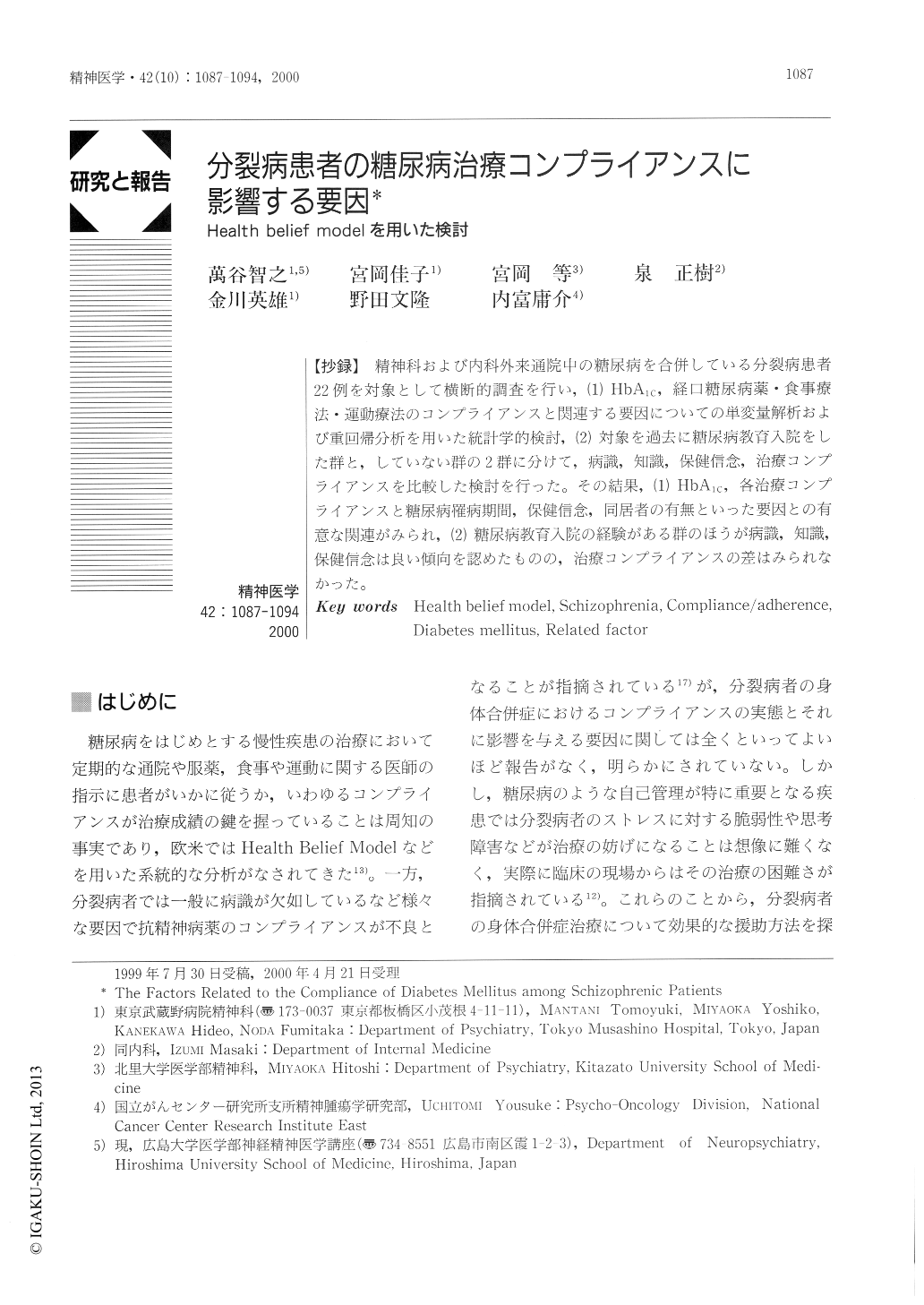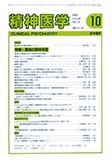Japanese
English
- 有料閲覧
- Abstract 文献概要
- 1ページ目 Look Inside
【抄録】 精神科および内科外来通院中の糖尿病を合併している分裂病患者22例を対象として横断的調査を行い,(1)HbA1C,経口糖尿病薬・食事療法・運動療法のコンプライアンスと関連する要因についての単変量解析および重回帰分析を用いた統計学的検討,(2)対象を過去に糖尿病教育入院をした群と,していない群の2群に分けて,病識,知識,保健信念,治療コンプライアンスを比較した検討を行った。その結果,(1)HbA1C,各治療コンプライアンスと糖尿病罹病期間,保健信念,同居者の有無といった要因との有意な関連がみられ,(2)糖尿病教育入院の経験がある群のほうが病識,知識,保健信念は良い傾向を認めたものの,治療コンプライアンスの差はみられなかった。
A cross-sectional study was undertaken in 22 NIDDM out-patients with schizophrenia to determine the factors that influence glycemic control and compliance/adherence of treatment for diabetes mellitus among schizophrenic patients. Socio-demographic variables and clinical variables about both diabetes and schizophrenia were investigated from patients, medical records and from interviews with the patients. In addition to this, questionnaires concerning knowledge, in-sight and health beliefs about diabetes were completed by the patients.
Single variable analysis revealed a significant relationship between HbA1C, level and the duration or the onset of diabetes, and between the compliance with medication and the belief that there will be unwelcome side effects of medication. It also showed a significant relationship between the compliance with diet therapy and the belief that diet therapy is difficult, or when there is a conscious feeling of the efficacy of the treatment. There was also a relationsphip between the-compliance with exercise therapy and the existence of lodger. Moreover, multiple regression analysis revealed the duration of diabetes and the belief that treatment preventing the complications of diabetes are significantly related to HbA1C level.
A health belief model is considered useful for the understanding of the compliance/adherence of NIDDM patients with schizophrenia.

Copyright © 2000, Igaku-Shoin Ltd. All rights reserved.


